George Eliot (1819-1880)
“Brother and Sister” (1874)
Background
“Brother and Sister” is a sonnet sequence which recreates George Eliot’s Warwickshire childhood. She wrote the 11 sonnets in July 1869.
The speaker of “Brother and Sister” is a woman looking back on her rural childhood and her relationship with her older brother. She sees her early experiences as forming her present self, yet acknowledges how much has changed since she and her brother shared a “childish world where our two spirits mingled”(XI). The tone is heavily nostalgic, even elegiac, with the speaker mourning “the dire years whose awful name is Change” and alluding to a rift between her and her brother (XI).
Isaac and Mary Anne Evans
George Eliot, born Mary Anne Evans, was the youngest of five children. She was particularly close to her brother Isaac, who was the nearest to her in age.
Like the brother and sister in the sonnets, Isaac and Mary Anne fell out as adults: Isaac severed relations with his sister when he discovered she was living with George Henry Lewes outside marriage. The speaker in “Brother and Sister” says that although there is a “divorce” (i.e. a separation) between her and her brother, their souls are “still yearning” for one another. Eliot wrote these sonnets almost twenty years after her relationship with Isaac broke down. “Brother and Sister” suggests that she longed to reconcile with him and fantasized that he felt the same.
“Brother and Sister” and The Mill on the Floss
Both ‘Brother and Sister’ and The Mill on the Floss (1860) have at their heart the relationship between an older brother and a younger sister. The speaker of “Brother and Sister,” like Maggie Tulliver, idolizes her older brother and tries to impress him. Certain scenes in “Brother and Sister” recall moments in The Mill on the Floss. Both the speaker and Maggie have frightening encounters with gypsies; both sets of siblings go fishing together, and in both cases the younger sister catches a fish.
The two works express the Wordsworthian belief that an individual’s childhood has a powerful effect on his or her adult self. “The thoughts and loves of these first years would always make part of [Maggie and Tom’s] lives,” says the narrator in The Mill on the Floss (ch.5), while the speaker of “Brother and Sister” writes that the hours she spent with her brother were “seed to all my after good” (V).
Background Text is a derivative of “Brother and Sister: sonnet sequence by George Eliot,” The British Library Board, licensed under CC-BY 4.0
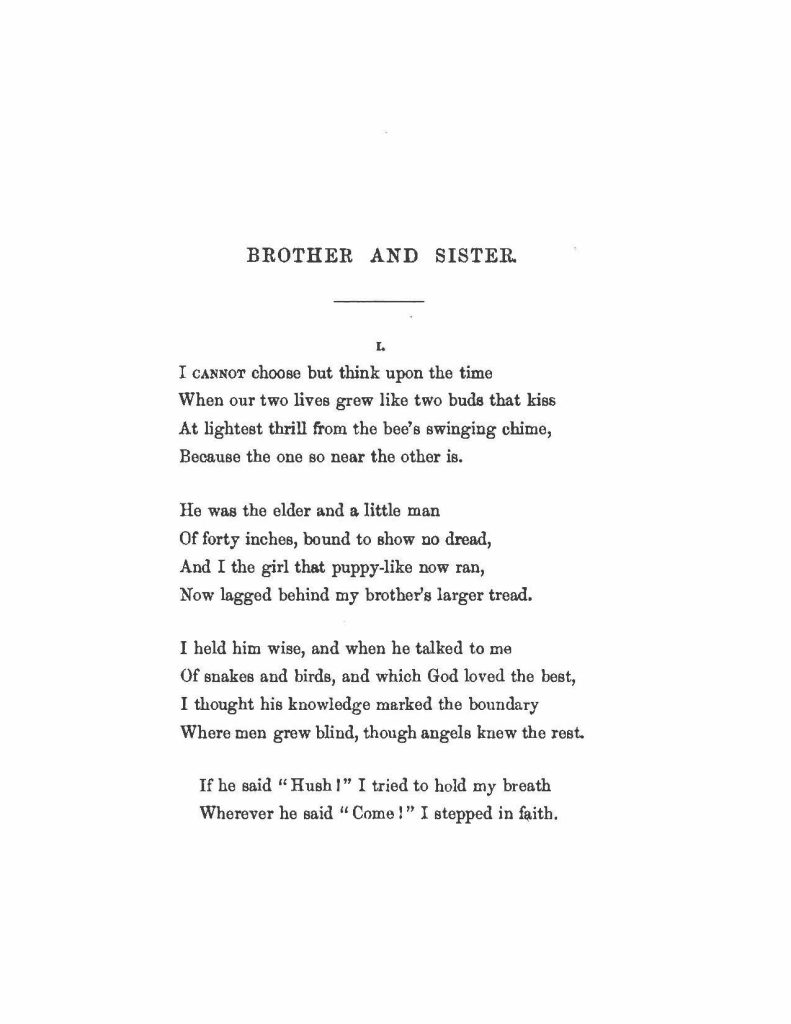
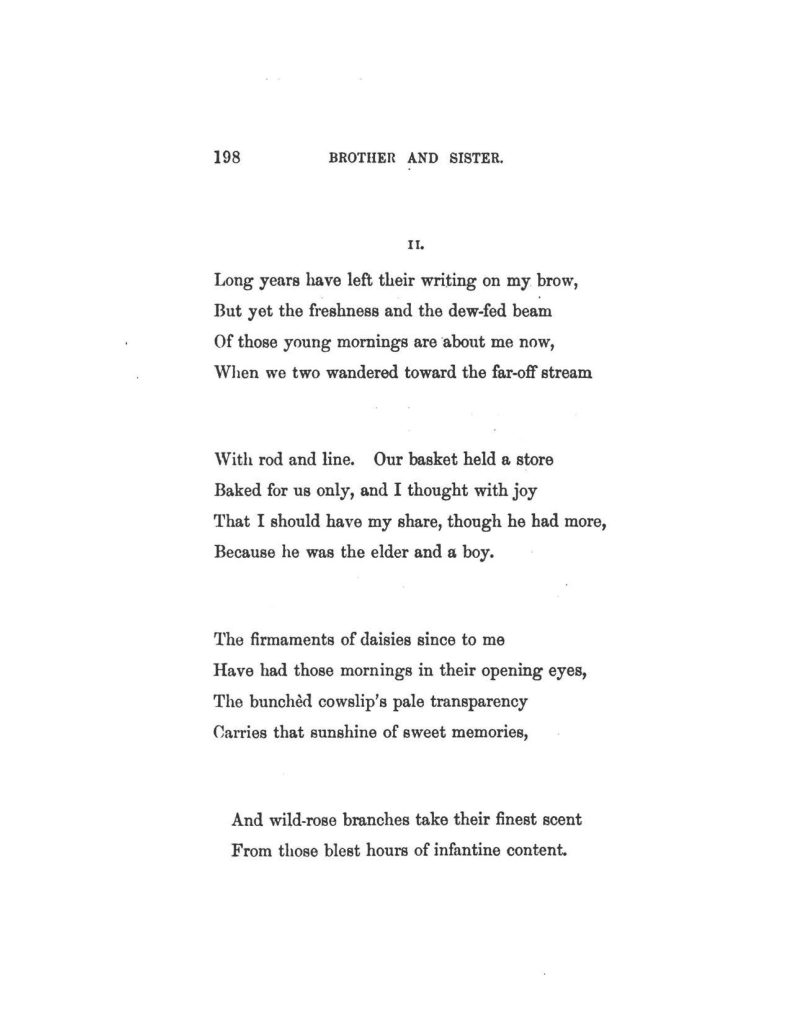
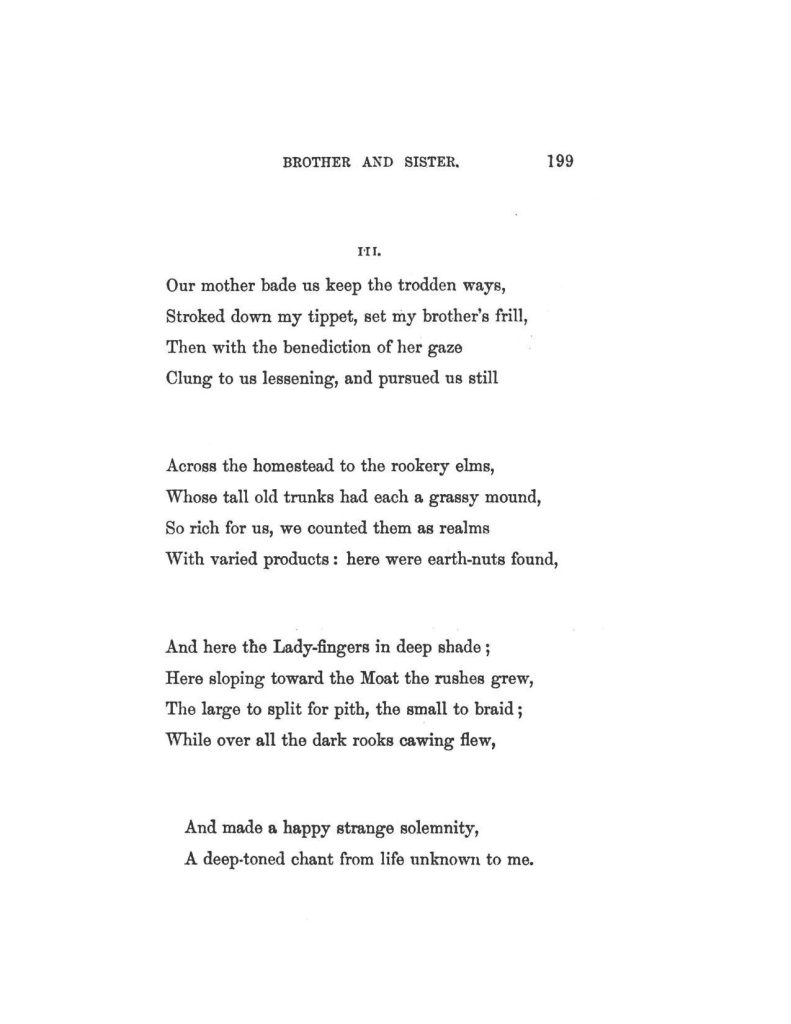
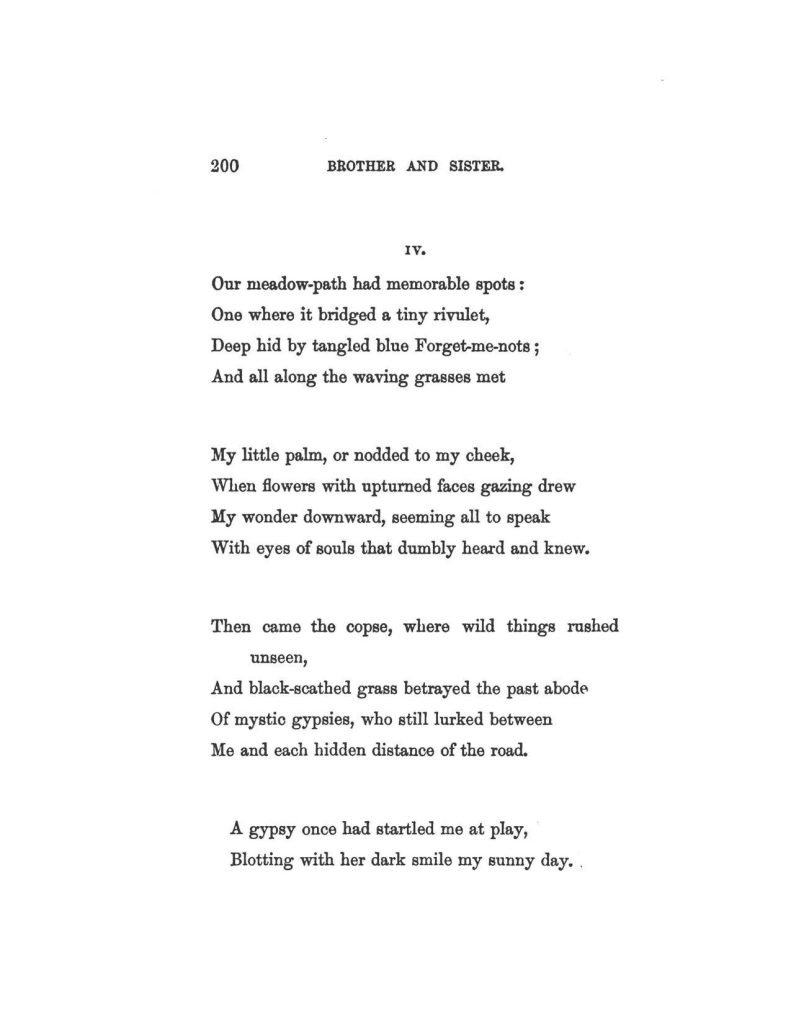
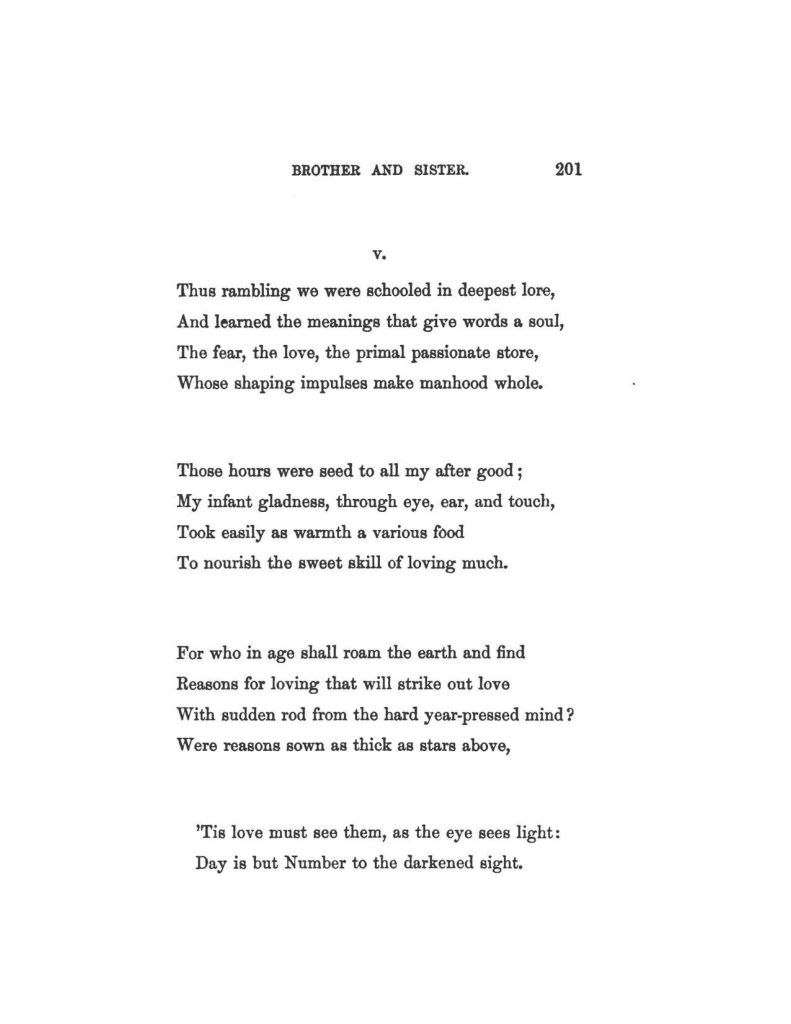
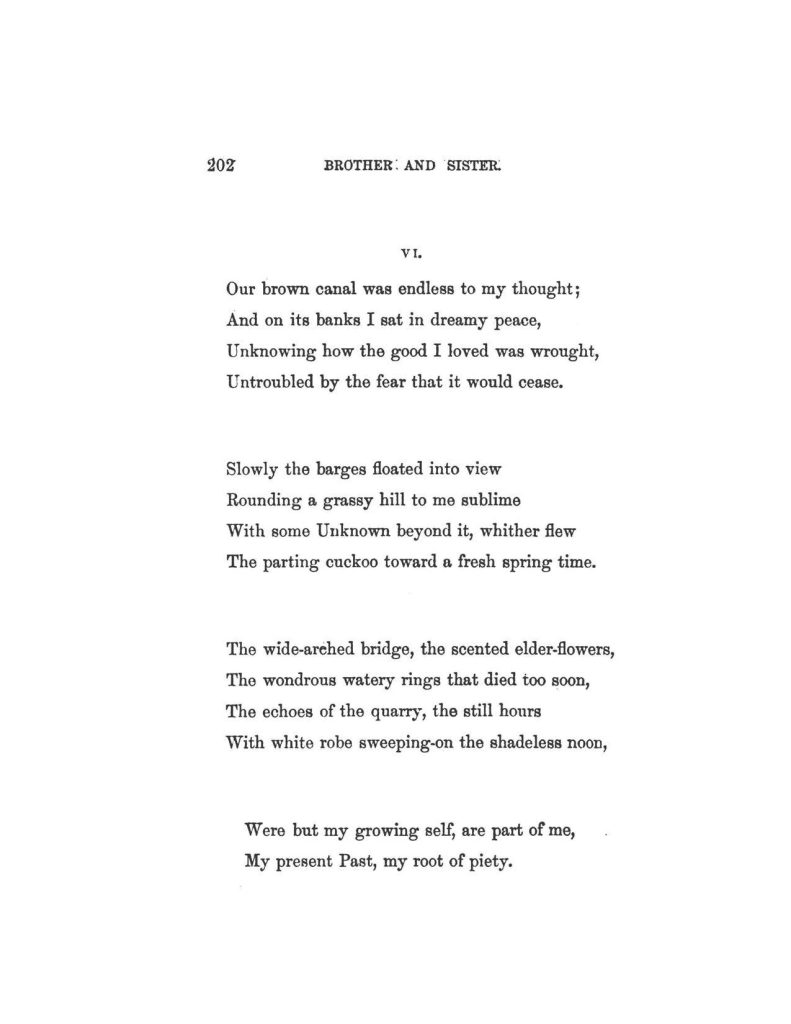
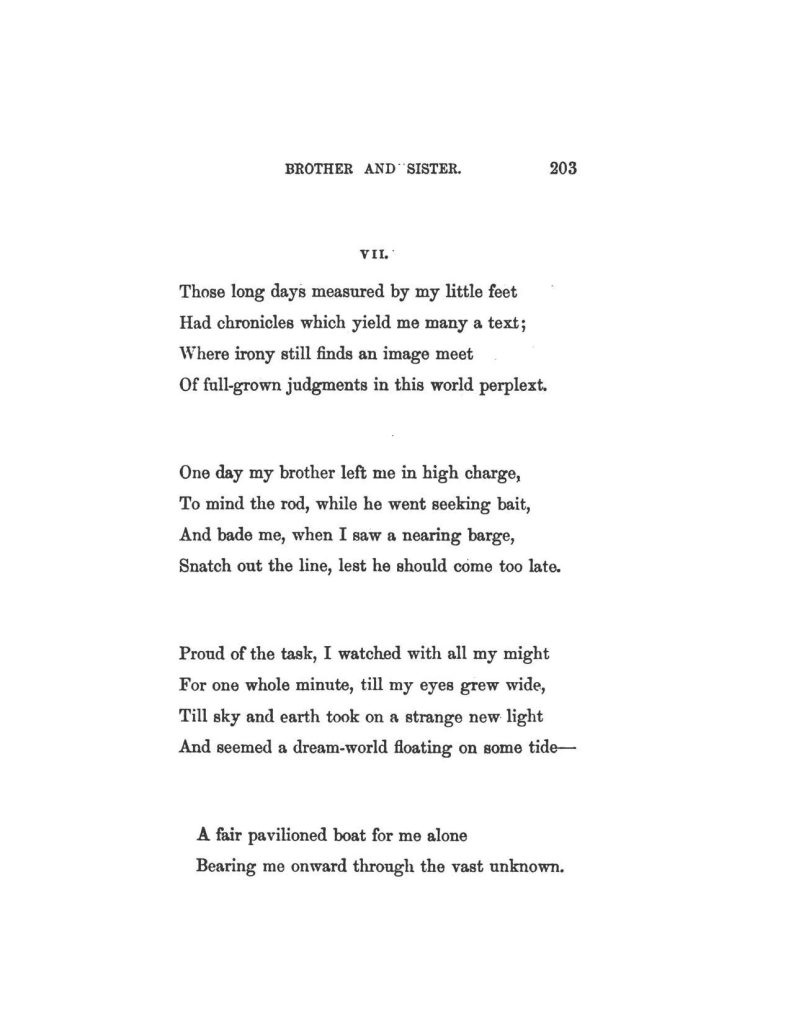
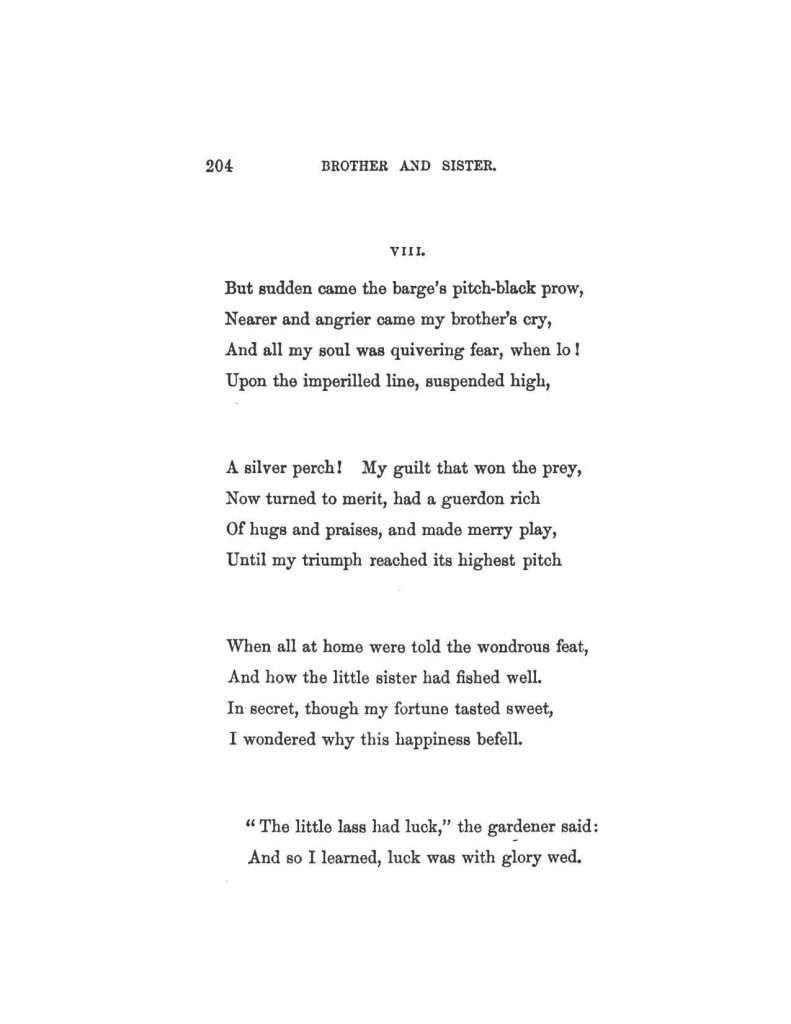
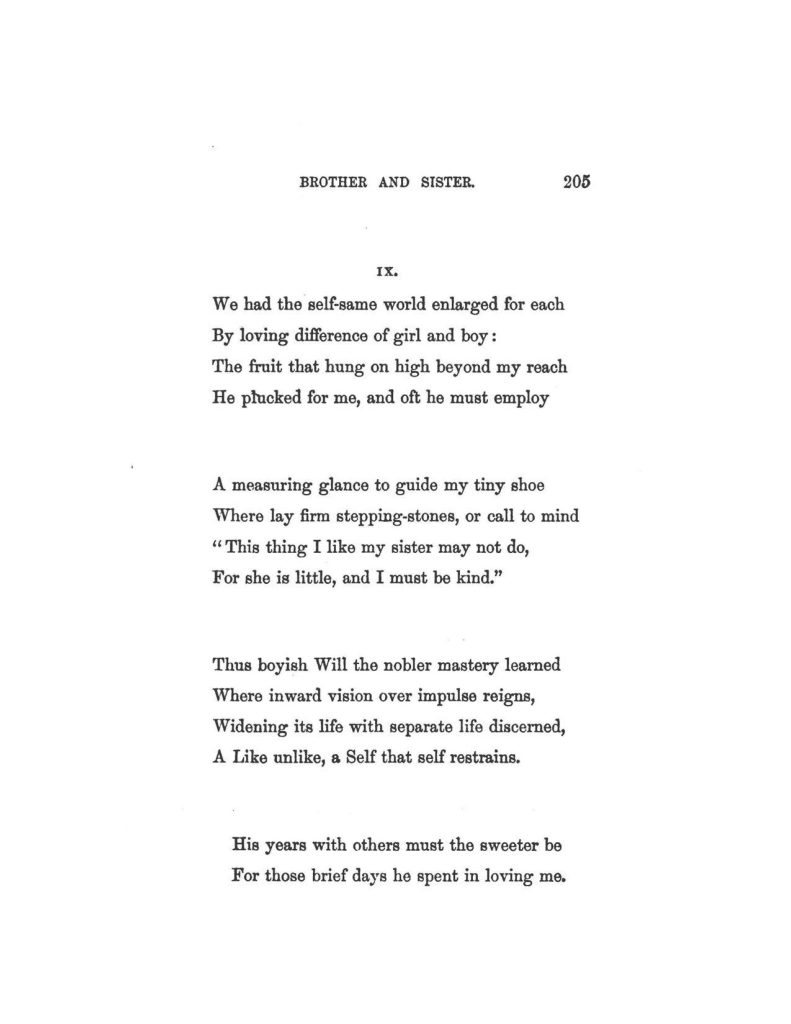
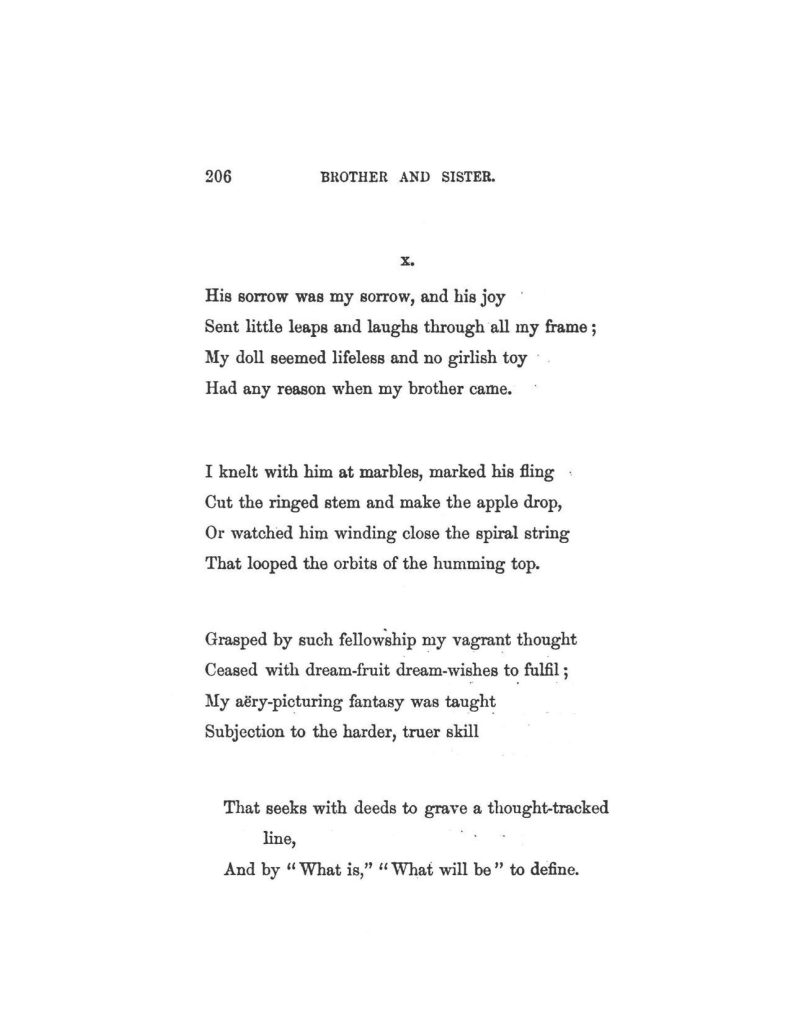
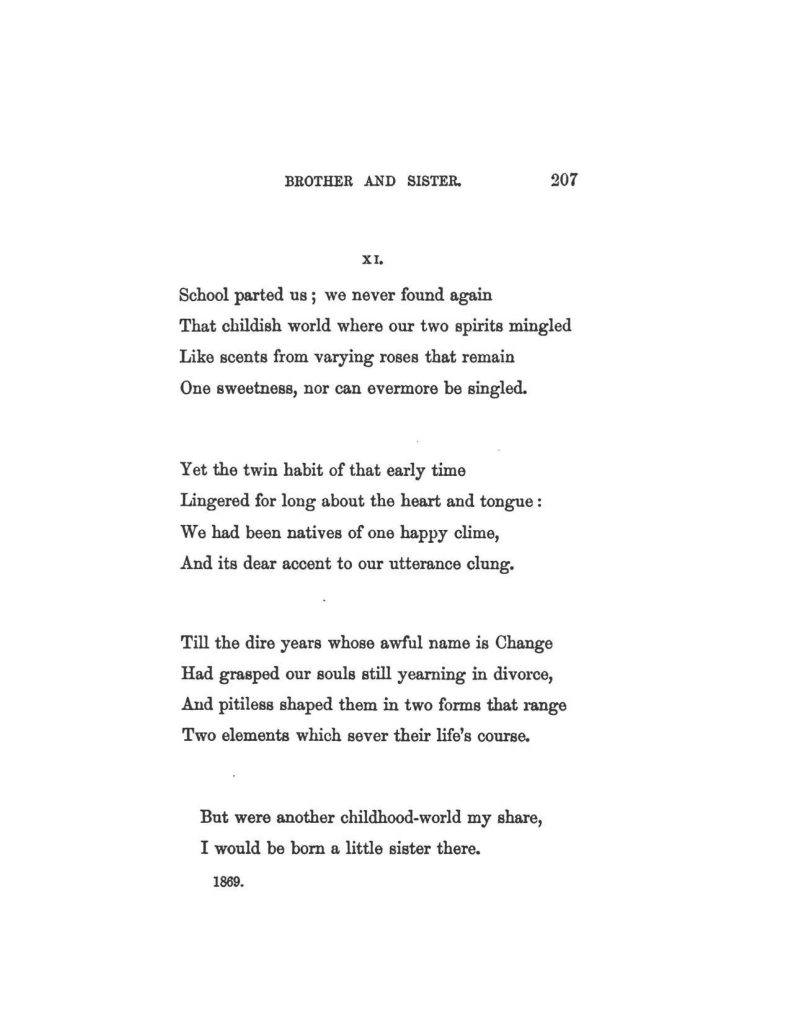
Text attribution: George Eliot, “Brother and Sister (1878, Cabinet Edition),” George Eliot Archive, https://georgeeliotarchive.org/items/show/601, licensed under CC-BY-NC-SA

